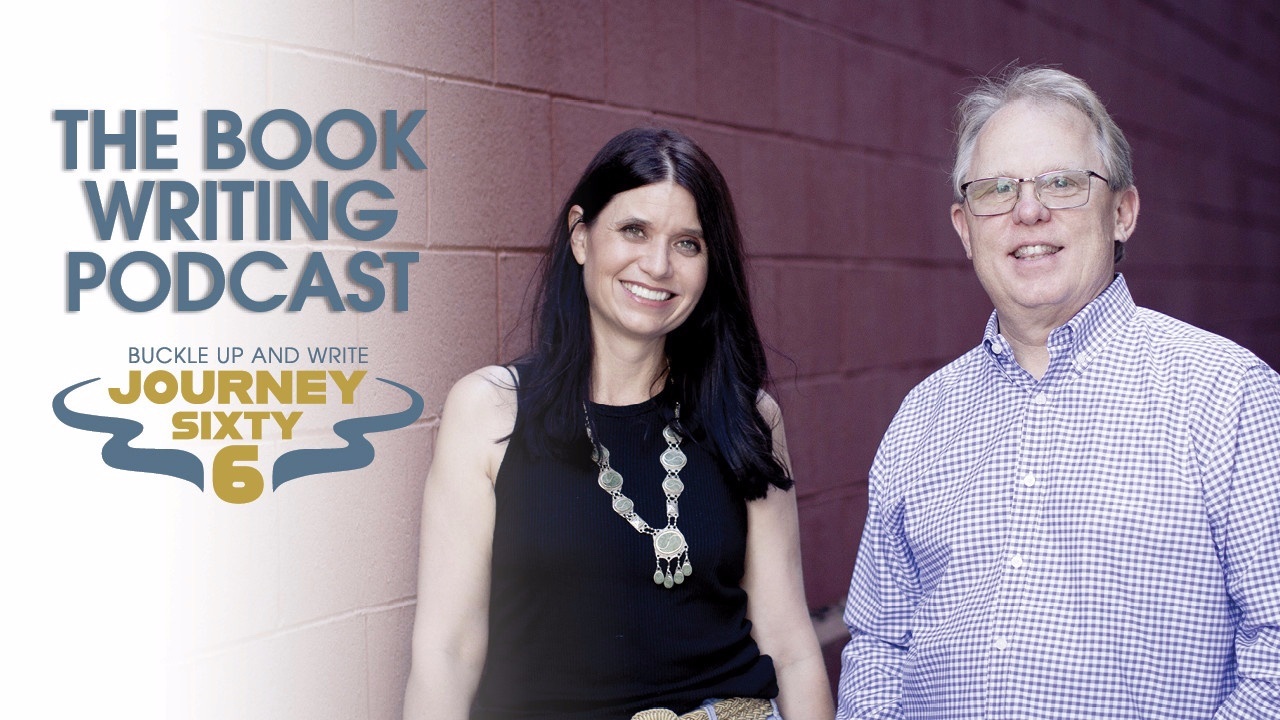[Podcast] The Four Cornerstones of Self-Publishing
Nov 23, 2021
“Is this vanity press?” “Are you going to control the rights?” “Do I have to pay a lot?”
These are common questions writers ask when considering self-publishing.
We spoke with Steven Spatz, President of BookBaby, who answers all these questions, and offers four cornerstones to self-publishing—including one that too many authors never put into place.
BookBaby is a self-publishing services provider. They give every bit of advice, tools, and access to the marketing place that a writer needs. Here’s the best part: they never take control of your book. You maintain full autonomy.
As Steven puts it, “You’re the contractor. We help you out with the subcontractor, the roofer, the plumber, and we help you get your book out into the marketplace. But you never lose control over your book.”
You retain creative control. Financial control. And legal control.
So, why else should you consider self-publishing? What benefits do you reap? Continue reading to learn more.
Teamwork Makes the Dream Work
In traditional publishing, you have a team of experts helping you chug along. So why shouldn’t you have the same for self-publishing?
The answer: you deserve a team too. Publishing a book is not something you need to do alone. In fact, you shouldn’t publish a book by yourself.
You deserve an editor, cover designer, and other professionals to review your book. You also need somebody who can get you into book stores and help you distribute your book.
You need a professional team, like BookBaby, though there are many other self-publishing service providers. Look for experts experienced in publishing. Pay for their services, or enlist the help of others whom you know with the experience you need. This will guarantee a successful self-publishing experience.
Editing Is Your Best Friend
You’ve likely read a self-published book riddle with errors a stiff proof would have caught. This is one reason self-publishing has been regarded as an inferior publishing method.
Readers want a quality book with few mistakes. They’re spending their money and time to read your work. Give them what they want, and what you deserve: a great product.
Your book should be the best version of itself. Which means you need good editing and a great design.
You can’t avoid editing. It’s foundational to all publishing. And you can never proof too much. When your book is ready and you’ve proofed it a hundred times, print out a physical copy and proof it once more.
It may seem tedious but proofing a physical copy of your project will prove useful. Our eyes grow lazy after staring at a screen for too long. And you also scan rather than read. You will miss stupid mistakes. But with a physical copy, you’ll find these mistakes much easier, because you slow down. At the end of the day, you want to submit a near-perfect copy of your work.
You also want a compelling design for your book. Everybody knows you’re not supposed to judge a book by its cover. But we’re humans, and we want something that’s aesthetically pleasing. If you want to sell a quality product, you will need an attractive design.
Pay Attention to Selling Your Book Before, During, and After Its Launch
You’ve written your book, edited it, and now you’re ready to publish it. But publishing isn’t as simple as it sounds. You need access to the marketplace.
Amazon sells 65 to 80% of books in the current marketplace. But don’t confine yourself to just Amazon. You want to reach as many people as possible, like Barnes and Noble.
You also want to get into e-books. Twenty-five percent of audiences read e-books, and another 50% toggle between e-books and physical copies. It’s important that you’re everywhere you can possibly be. And you need to promote your book early.
The pre-sale period is important if you want to sell your book. Don’t hand in your book a month before its sale date.
Instead, turn in your book a few months early and start promoting. Do free giveaways to get your book out there. Set up a page on Amazon that generates activity. The more people who visit the IP address—even if they don’t buy your book—will work the Amazon algorithm in your favor.
No author ever regretted putting in their time and effort to promote their book before its sale period.
Find a Company You Trust and Blaze Forward
Your project is your baby. It’s something you’ve worked on for months or perhaps years. It’s something you cherish, something you’re proud of. So, it’s understandable if you’re a bit apprehensive working with others.
There are far too many stories of clients submitting a manuscript and losing the rights to their project. Don’t end up like them! Do your research, interview prospective companies, read the fine print of contracts, and find a reputable team just for you.
When you’re interviewing a potential team, ask them what they can guarantee. No company should ever guarantee that your project is going to sell. There’s no way to predict the accuracy of this. But the company you choose to work with should guarantee the reliability of their products and services so that you leave with the best version of your project.
Be comfortable with self-publishing. We are past the age when vanity press thrived and self-publishing was a dirty word. You can—and should—feel empowered by self-publishing!



